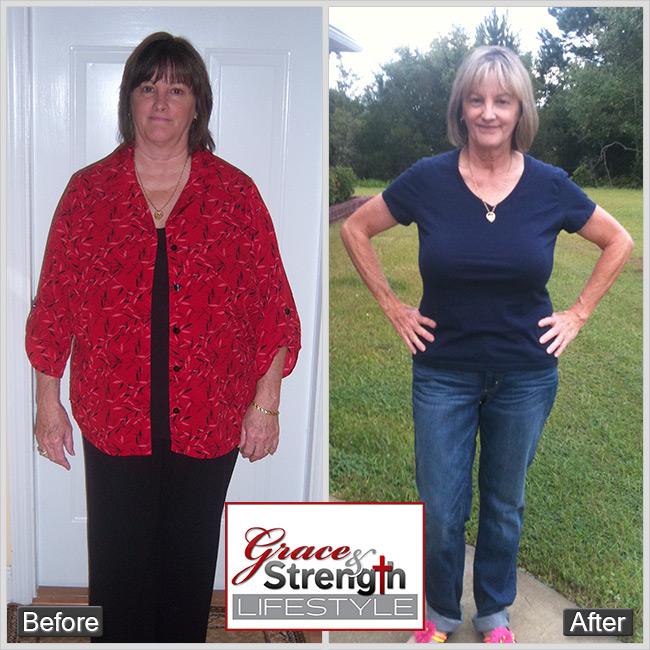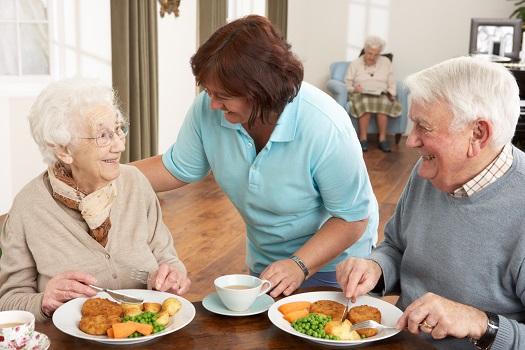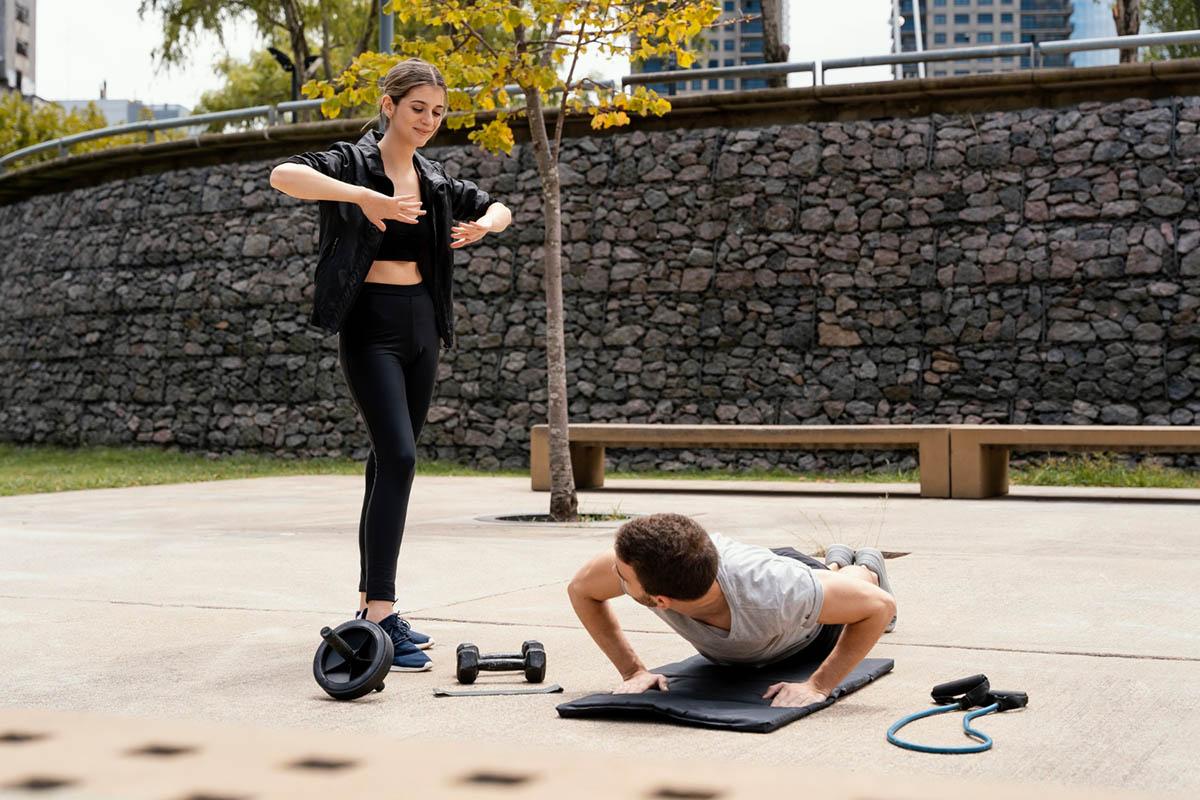Have you ever felt like losing weight is becoming an uphill battle as you age? If so, you’re not alone. Many people over 50 find that their bodies react differently to diet and exercise, making it tougher to shed those extra pounds. But don’t worry—this article is here to help. We’ll explore practical strategies that resonate with your lifestyle and tackle the specific challenges you may face at this stage of life, from slower metabolism to those pesky cravings. Plus, we’ll touch on some unexpected tips that might just make the journey a little easier. So, if you’re ready to discover ways to feel lighter and more energized, let’s dive right in!

Weight Loss Tips for 50 Plus Individuals
As we navigate through our fifties and beyond, embarking on a weight loss journey can feel daunting. Yet, it’s important to remember that it’s never too late to prioritize your health. Many people assume that weight loss becomes exponentially harder with age due to slower metabolism and hormonal changes. While it’s true that metabolism can decline, we can counteract it with smart choices. Consider this: a 2012 study from the National Institutes of Health found that regular physical activity can significantly help maintain muscle mass, which in turn boosts metabolism. It’s about adjusting strategies rather than feeling defeated. Have you thought about how incorporating strength training into your routine can not only help with muscle preservation but also stave off the effects of aging?
Nutrition is undeniably a cornerstone of any successful weight loss plan, especially for those of us over fifty. The misconception that you must drastically cut calories can be misleading. Instead, focus on the quality of your food. Opt for whole grains, lean proteins, and plenty of fruits and vegetables. Research from the Harvard School of Public Health suggests that diets rich in plant-based foods not only aid in weight management but also boost heart health, which is crucial as we age. Have you experimented with meal prepping? Preparing healthy meals in advance can save time and helps avoid the temptation of unhealthy choices. It’s a practical step that promotes mindful eating and reduces impulse decisions.
let’s talk about the power of community and accountability. Finding a workout buddy or joining local groups can make the journey more enjoyable—and perhaps even a little less intimidating. Sharing your goals with friends or family can also foster a sense of accountability. A 2020 study published in the American Psychological Association found that social support significantly improves adherence to exercise routines, highlighting the psychological benefits of a supportive environment. So, what stops you from reaching out to an old friend or inviting neighbors for a walk? The path to better health doesn’t have to be walked alone; it can be a shared adventure of joy, laughter, and progress.

Nutritional Guidelines for Mature Adults
As we age, our bodies undergo significant changes that influence how we process nutrients. This isn’t just about counting calories or hitting the gym more frequently; it’s about understanding what fuels our unique needs as mature adults. Did you know that our metabolism starts to slow down around our 30s and continues to decline? This means our bodies require fewer calories, making it crucial to focus not just on quantity, but quality of food. Incorporating a variety of nutrient-dense foods like fruits, vegetables, whole grains, and lean proteins ensures we get the vitamins and minerals essential for our health and vitality.
Moreover, hydration often gets overlooked. Have you ever noticed how, as we get older, we might not feel as thirsty as we used to? This can lead to dehydration, which is linked to a slew of health problems, from kidney stones to constipation. Aim for at least 8 cups of water a day, or more if you’re active. To make it easier, carry a refillable bottle with you or include water-rich foods in your meals, like cucumbers and watermelon. Simple shifts like these can profoundly impact your energy levels and overall health.
Let’s not forget about the power of portion control. Picture your plate: is it bursting with food, or do you find balance and moderation? Many mature adults benefit from assessing their portion sizes, which helps in understanding hunger cues better. Instead of a large plate filled to the brim, try using a smaller dish; it tricks your brain into thinking you’re consuming more. Visit sources like the USDA’s MyPlate for guidance on healthy eating patterns. It’s all about making small, manageable changes that foster long-term wellness. Are you ready to transform your relationship with food in a way that promotes health as you age?

Exercise Strategies for Sustainable Weight Loss
When it comes to shedding pounds after 50, many people are surprised to learn that the typical cardio routines they once relied on may not be as effective as they remember. Have you ever noticed how much your body changes with age? Muscle mass diminishes, metabolism slows down, and recovery takes longer. This is where resistance training becomes your new best friend. Incorporating weights, resistance bands, or even body-weight exercises can help to build muscle, which is crucial for increasing that metabolic rate. A study by the Journal of Applied Physiology found that adults over 50 who engaged in strength training maintained muscle mass and improved their metabolic function. So, why not start with just two or three simple sessions each week? A few squats, lunges, or push-ups can make a world of difference!
Think about how often you hear that “all movement counts.” While it’s true, the idea often gets overshadowed by the allure of high-intensity workouts. Have you ever tried brisk walking or Pilates? These low-impact exercises can offer tremendous benefits, especially for those over 50. They promote flexibility, core strength, and balance—elements that are decidedly vital as we age. Plus, a long stroll in your neighborhood or a gentle yoga class can serve as a form of mindfulness, allowing you to connect with your body in a supportive and nurturing way. Did you know that the CDC recommends at least 150 minutes of moderate-intensity aerobic activity weekly? That can be as simple as a 30-minute walk five days a week!
Let’s not overlook the significance of fun and social interaction in your exercise routine. What hobbies have you always wanted to try? Think dance classes, group hikes, or even joining a community sports league. Not only are you going to help your heart and muscles, but you’ll also be forging connections with others who share similar goals. This social aspect can enhance your motivation and hold you accountable, making those exercise sessions something to look forward to. In fact, research from the American Journal of Preventive Medicine indicates that social support is one of the strongest predictors of long-term weight loss success. So grab a friend, try a new activity, and transform your mindset about exercise into an opportunity for joy!

Mindset Shifts for Lifelong Wellness
Imagine for a moment that you’re standing in front of a mirror, embracing the vibrant person you are today. By shifting your mindset, you can redefine what “wellness” means to you, especially if you’re navigating the weight loss journey after 50. It’s not just about the number on the scale; it’s about nurturing your body and soul. Consider this: what if you viewed every nutritious choice not as a restriction, but as a celebration of health? Small daily decisions can accumulate and lead to remarkable transformations. Think of it as building a wellness toolkit, filled with habits that empower and uplift rather than constrict. Start by incorporating more whole foods, like fruits, vegetables, and whole grains, while peeling away the processed snacks that tend to creep in.
Another essential shift is moving towards a growth mindset. Instead of telling yourself “I can’t do this,” try reframing it to “I haven’t mastered this yet.” This is especially crucial as our bodies and metabolisms change with age. For instance, many believe that intense workouts are the only way to lose weight, which can be discouraging. However, low-impact activities like yoga or walking can be just as effective. They not only enhance mobility and flexibility but also foster a sense of community and support. Have you ever thought about partnering with a friend or joining a local group? By sharing your journey with others, you access a well of encouragement and accountability that can propel you forward. Resources like the CDC’s BMI calculator can help you set realistic goals that align with your personal journey.
let’s talk about self-compassion. It’s all too easy to slip into negative self-talk when progress seems slow. Instead, try treating yourself with the same kindness you would offer a friend. Celebrate every victory, no matter how small. Did you resist the urge for that third cookie? Bravo! Remember, it’s the cumulative effect of these mindful choices that lays the foundation for lasting change. By practicing gratitude for what your body can do—walking up the stairs without losing breath or lifting a weight you couldn’t before—you cultivate a positive relationship with your body. To inspire your mindset shift, consider tracking your progress in health journals or apps, noting not just what you eat or your exercise routines, but also how you feel emotionally and mentally. When you cherish your journey, not just the destination, you’re more likely to sustain your efforts over the long haul.

Common Challenges and Solutions for Older Adults
As we age, our bodies undergo a myriad of changes that can complicate weight loss efforts. It’s a common misconception that shedding pounds after 50 is impossible. Yet, consider this: studies reveal that moderate weight loss can significantly lower the risk of chronic diseases, enhance mobility, and elevate overall mood. The key? Understanding the unique challenges that come with this phase of life. Hormonal shifts, a slower metabolism, and muscle loss are all factors at play, but they can be tackled with the right approach. Have you ever noticed how your neighbor started walking every morning? A simple routine like that can make all the difference!
One actionable strategy is to focus on nutrient-dense foods that not only fuel your body but also satisfy your hunger. Instead of going for calorie-deficient diets that can leave you feeling drained, filling your plate with colorful vegetables, lean proteins, and healthy fats can lead to successful weight management without sacrificing energy. Some effective options include:
- Leafy greens: Spinach and kale are low in calories but high in essential nutrients.
- Whole grains: Opt for brown rice or quinoa, which provide fiber and keep you fuller longer.
- Legumes: Lentils and beans are fantastic sources of protein and keep blood sugar levels stable.
Building meals around these ingredients can transform how you feel and approach eating.
Furthermore, don’t underestimate the power of strength training. Many older adults shy away from weights, believing they might injure themselves, but research shows that resistance exercise improves bone density and muscle retention. Aim for two to three sessions a week, incorporating exercises like squats, push-ups, or resistance band workouts. Consider joining a class or partnering with a friend to make it more enjoyable! It’s about creating a sustainable lifestyle rather than seeing it as a chore. By fostering a community around these activities, not only do we keep ourselves accountable, but we also spark friendships that can be incredibly fulfilling. It’s not just about losing weight; it’s about gaining a vibrant, active life!
In Retrospect
As we’ve explored, embarking on a weight loss journey after turning 50 can be both a challenge and a rewarding adventure. Embracing a balanced diet, engaging in regular physical activity, and prioritizing overall well-being can make all the difference in achieving your goals. Remember, it’s not just about shedding pounds but enhancing your quality of life and vitality. So, why not take a moment to reflect on your own path? What small changes could you implement this week to feel healthier and more energized? Share your thoughts or personal experiences in the comments—we’d love to hear from you! Every step you take is a victory, and by adopting a positive mindset, you’re already on the road to success. You have the power to redefine your health at any age, so go out there and make this chapter your best one yet!





